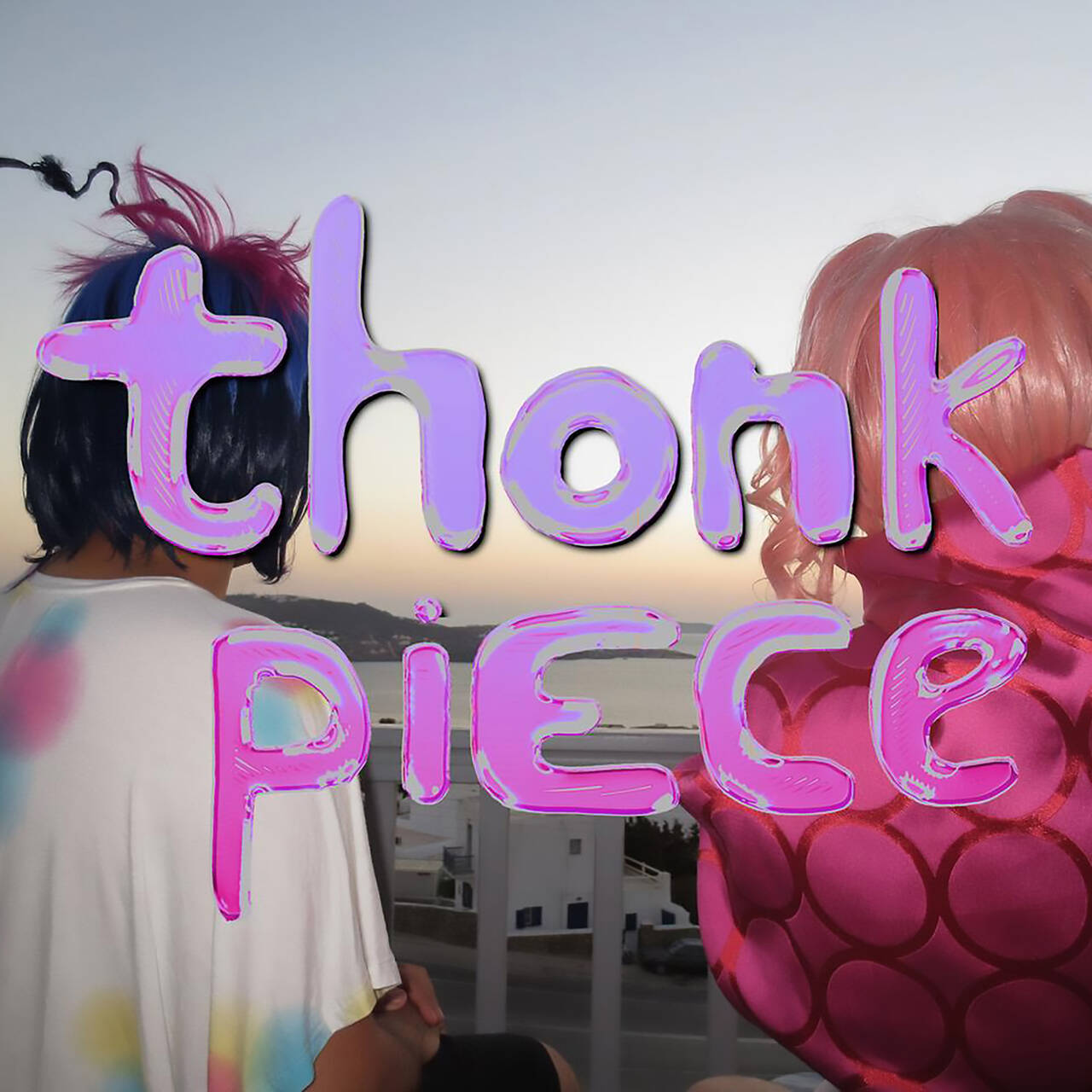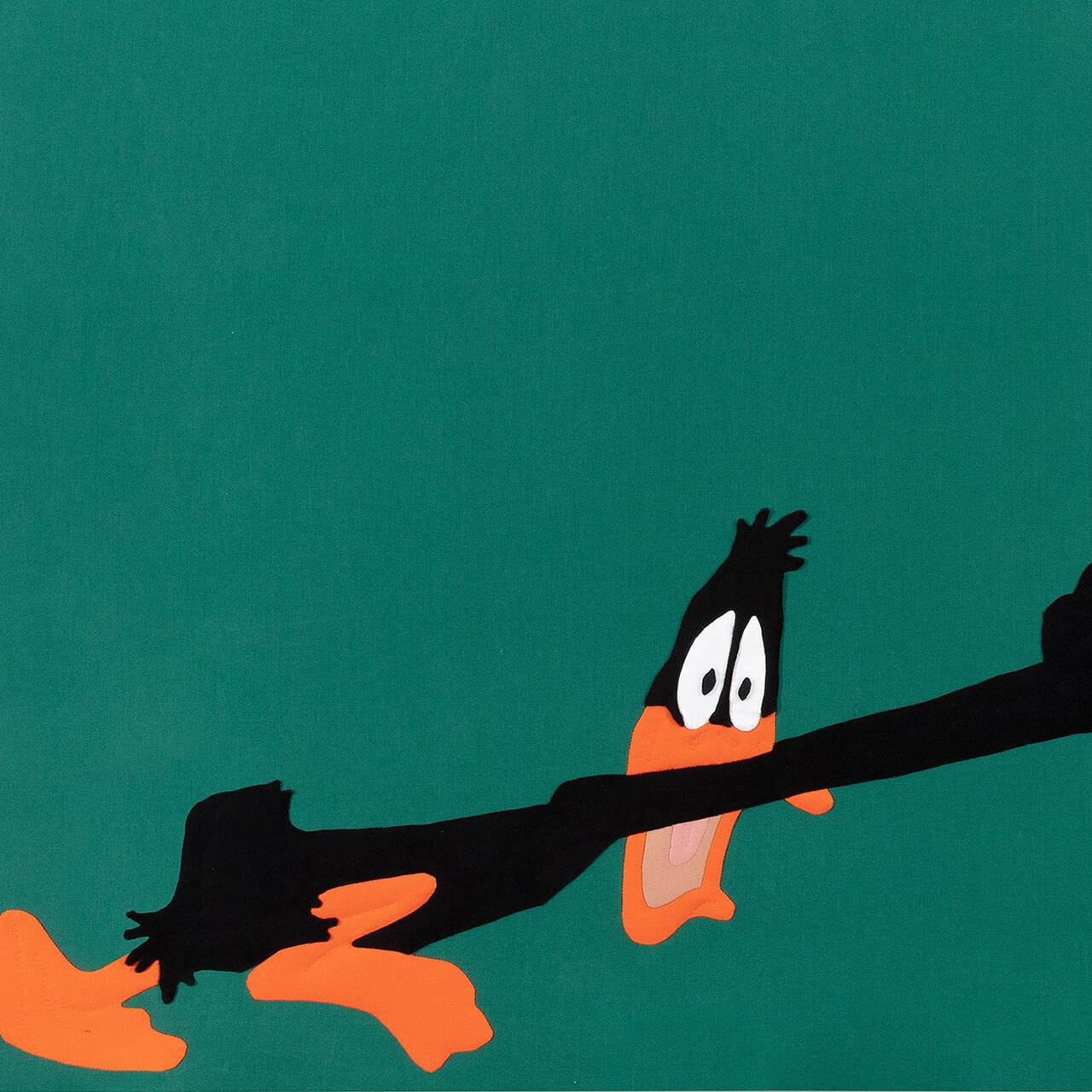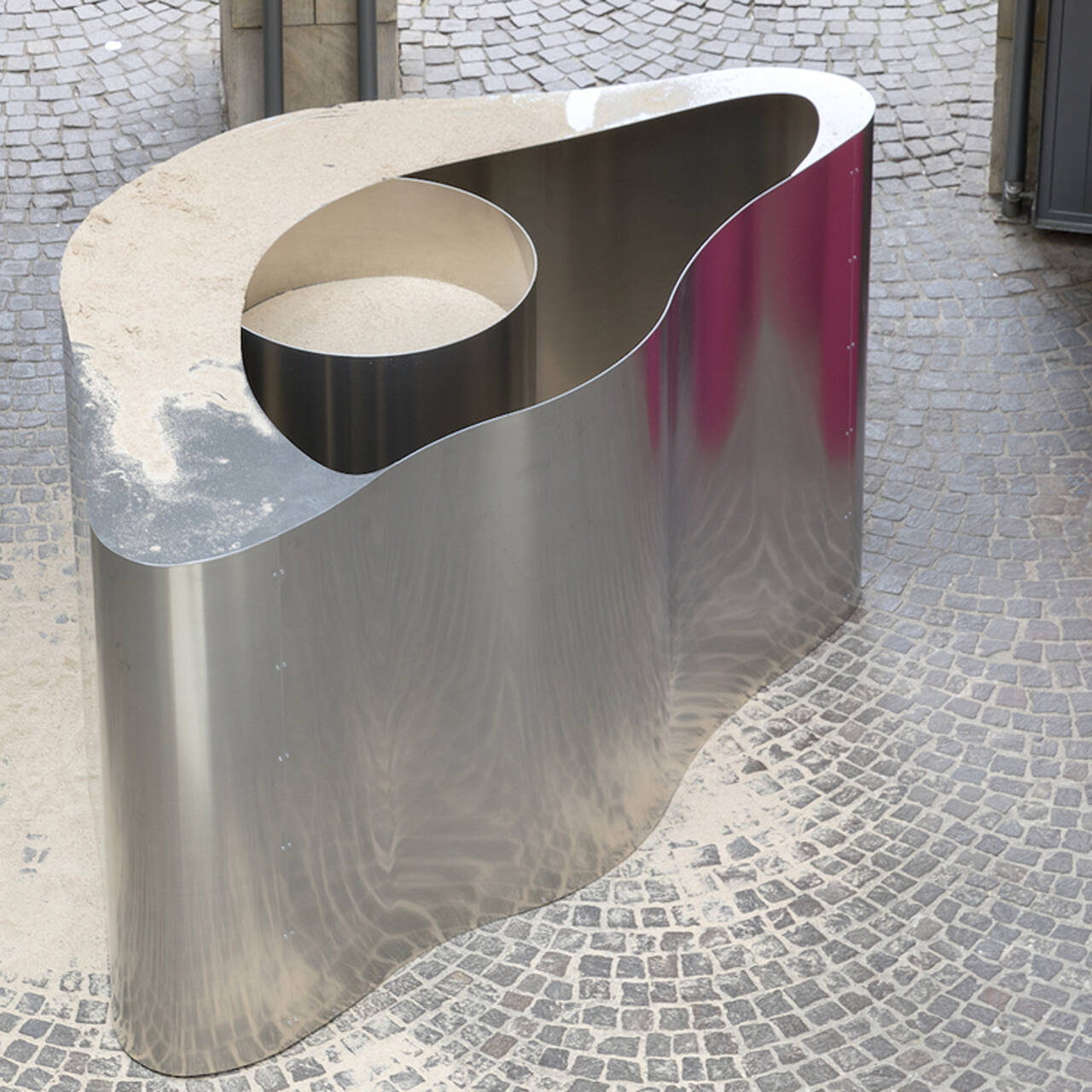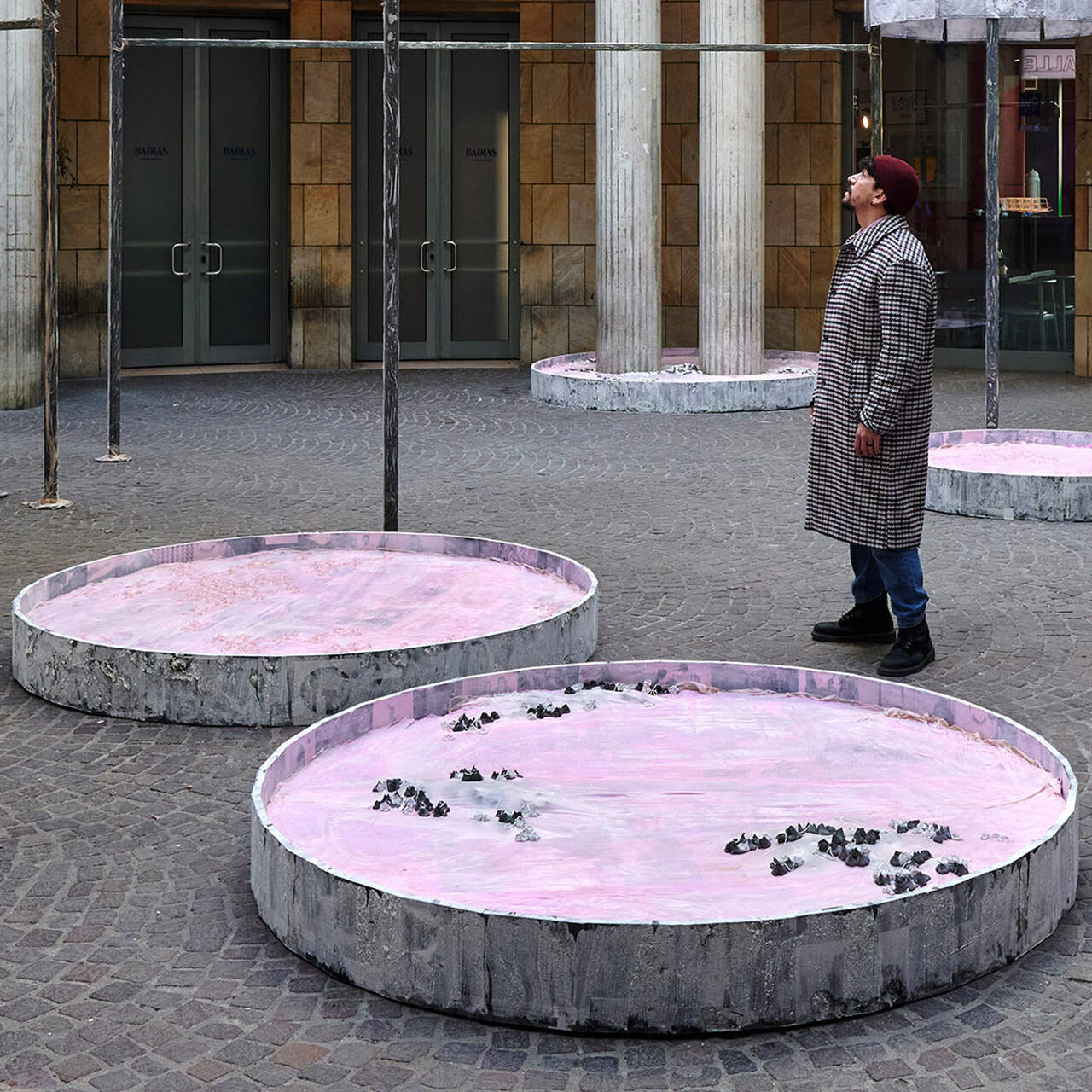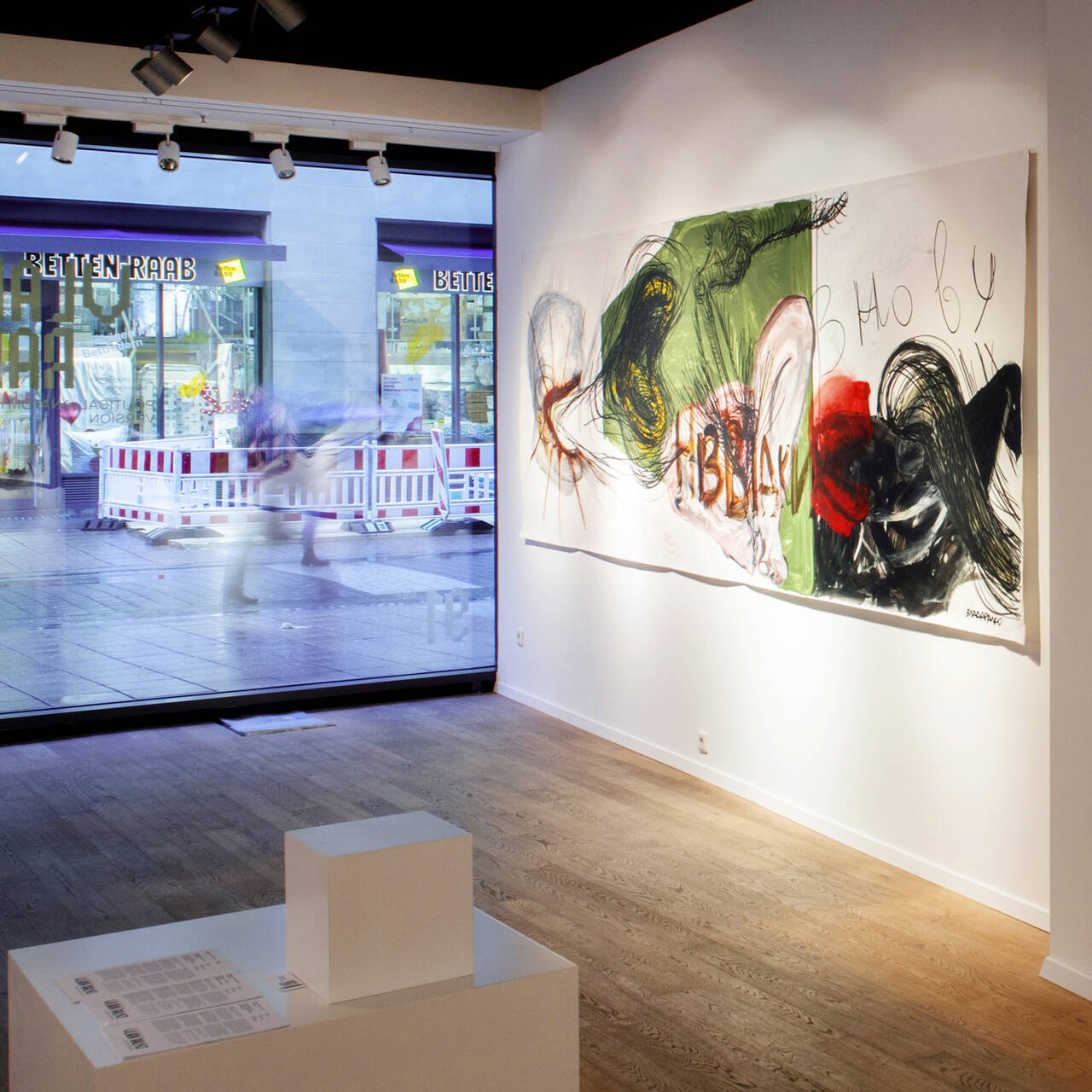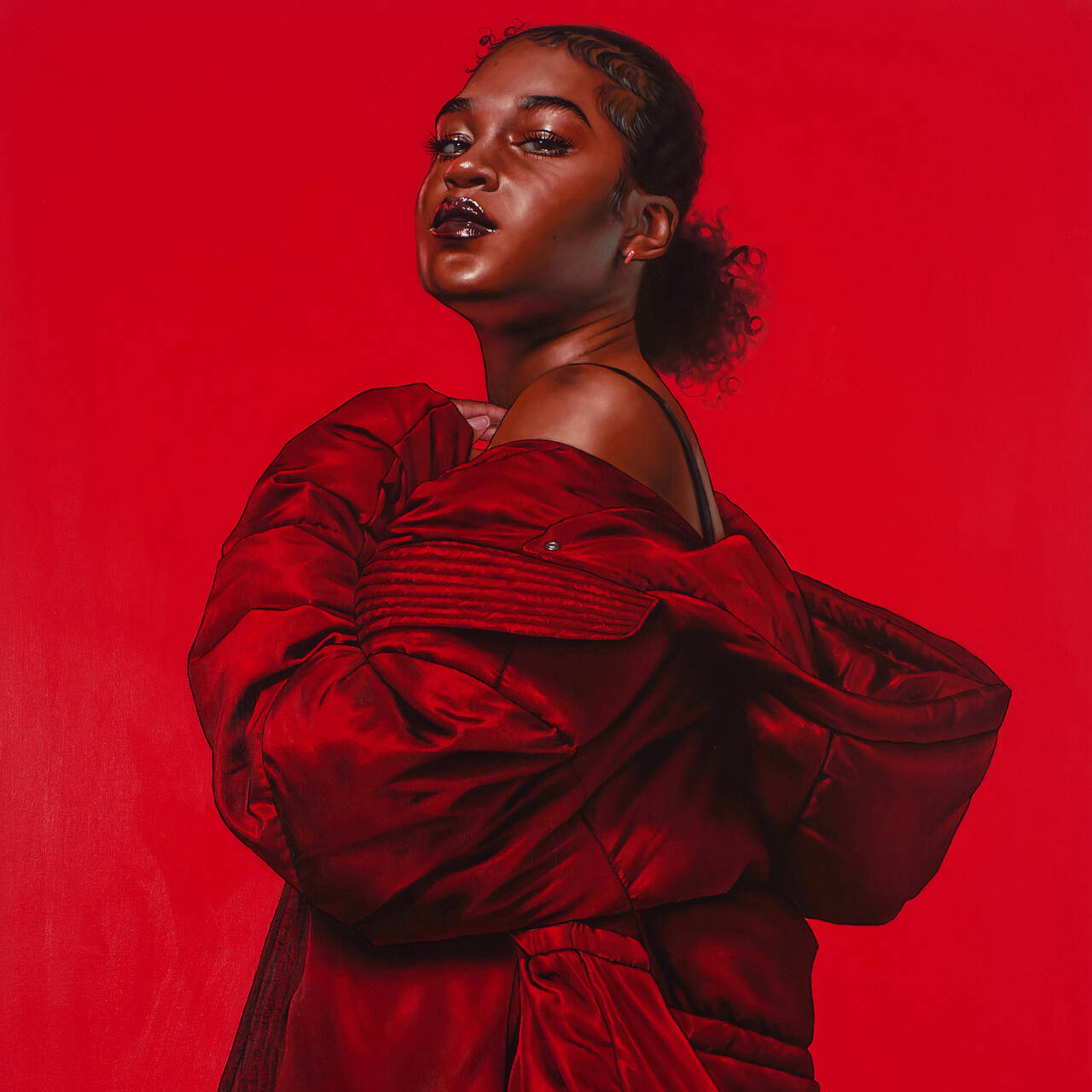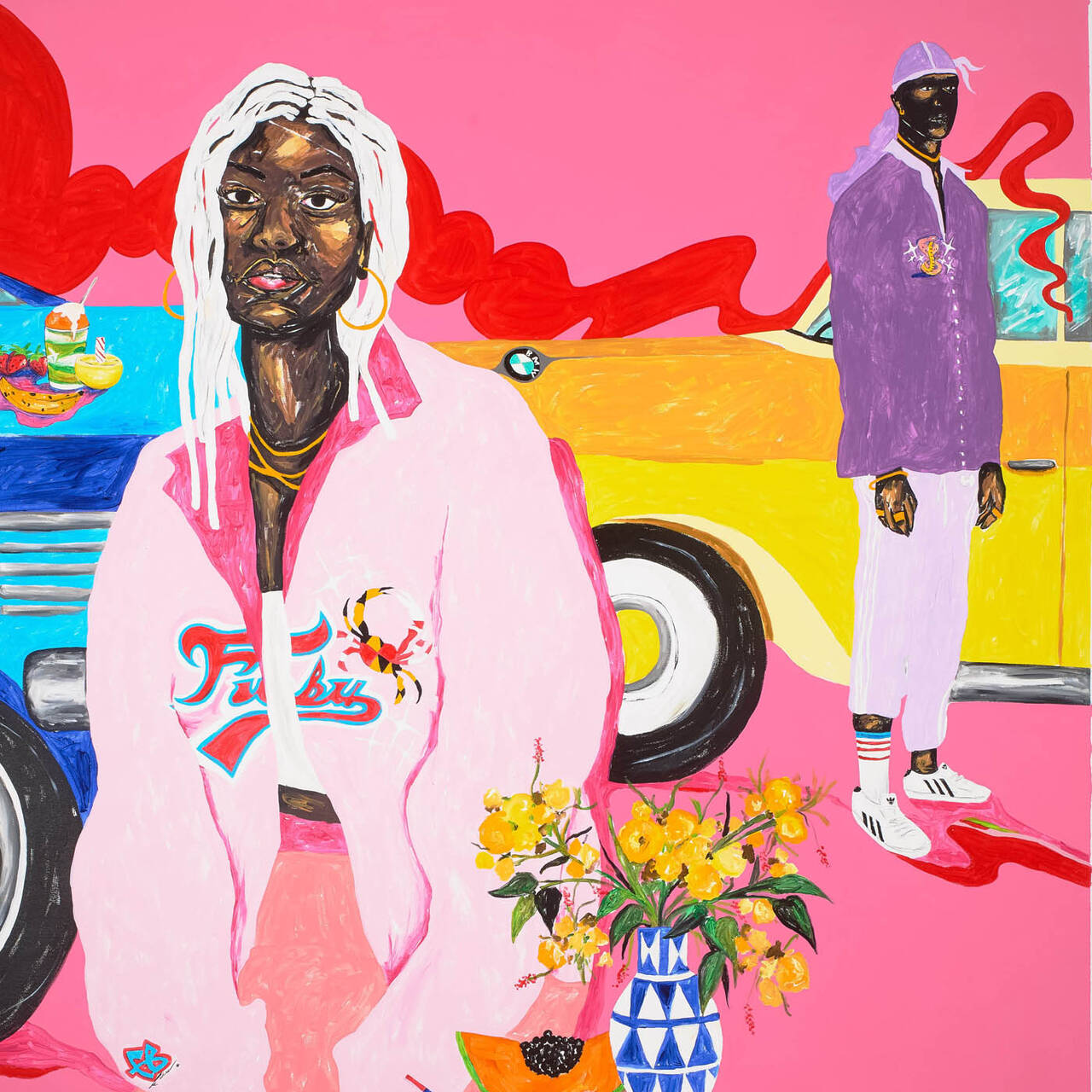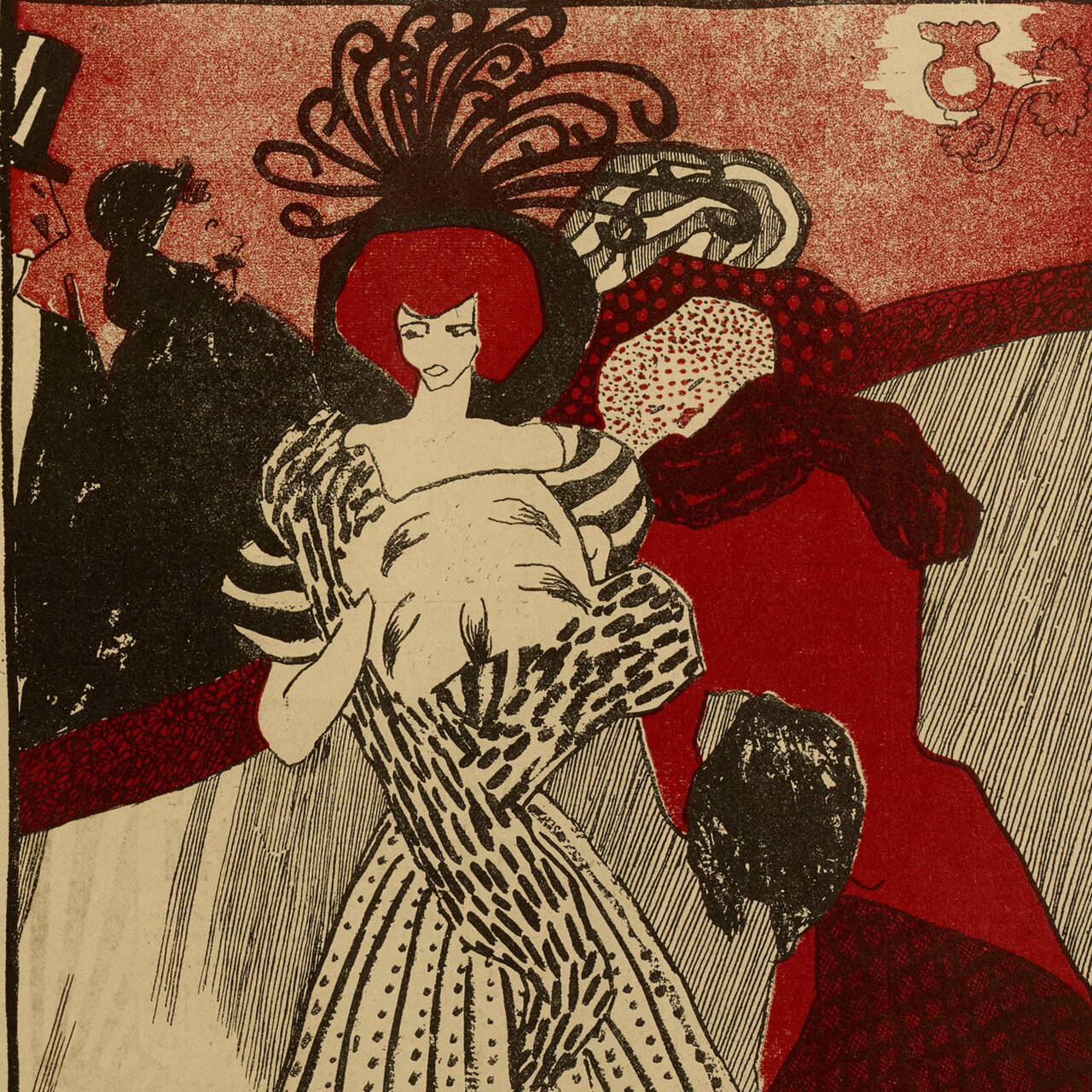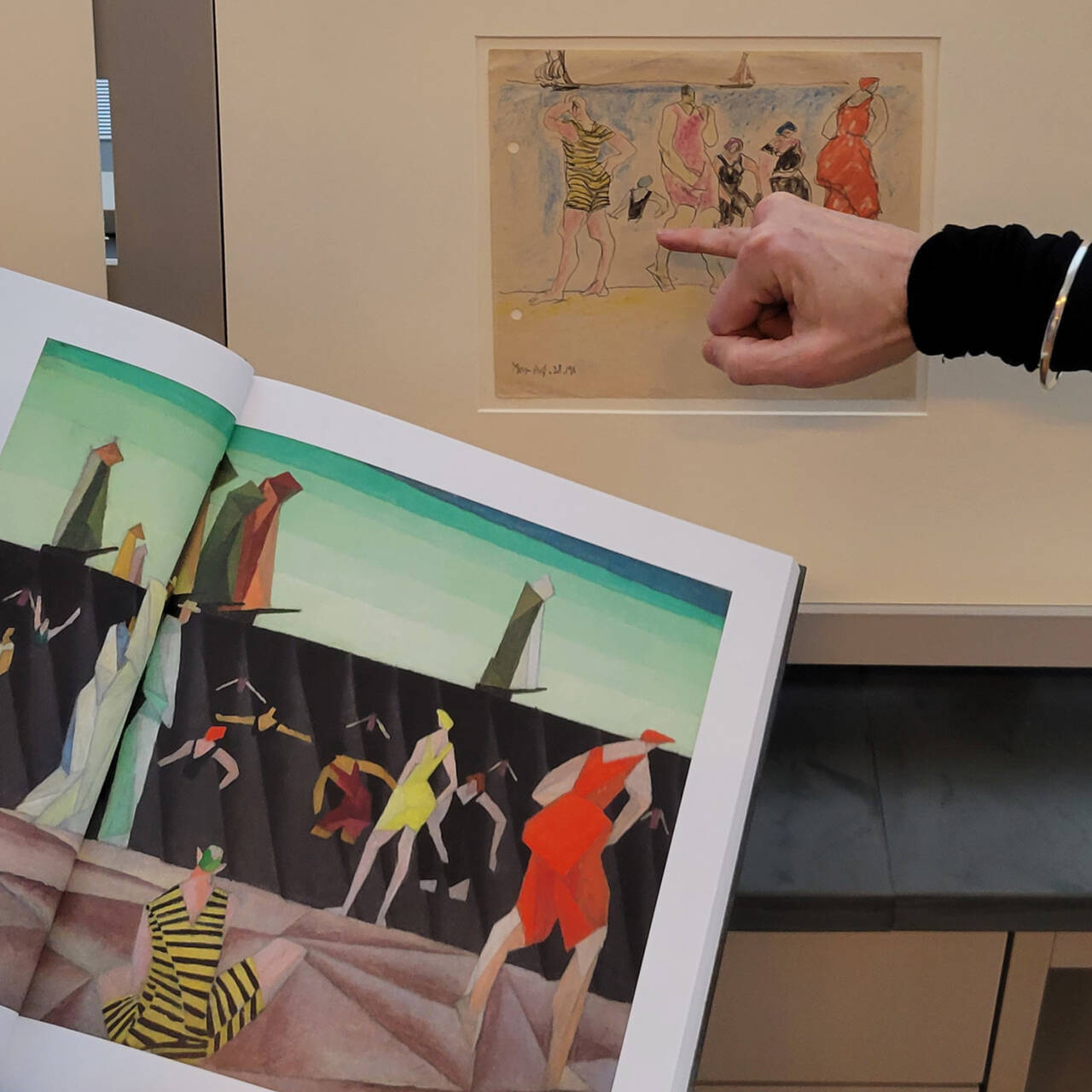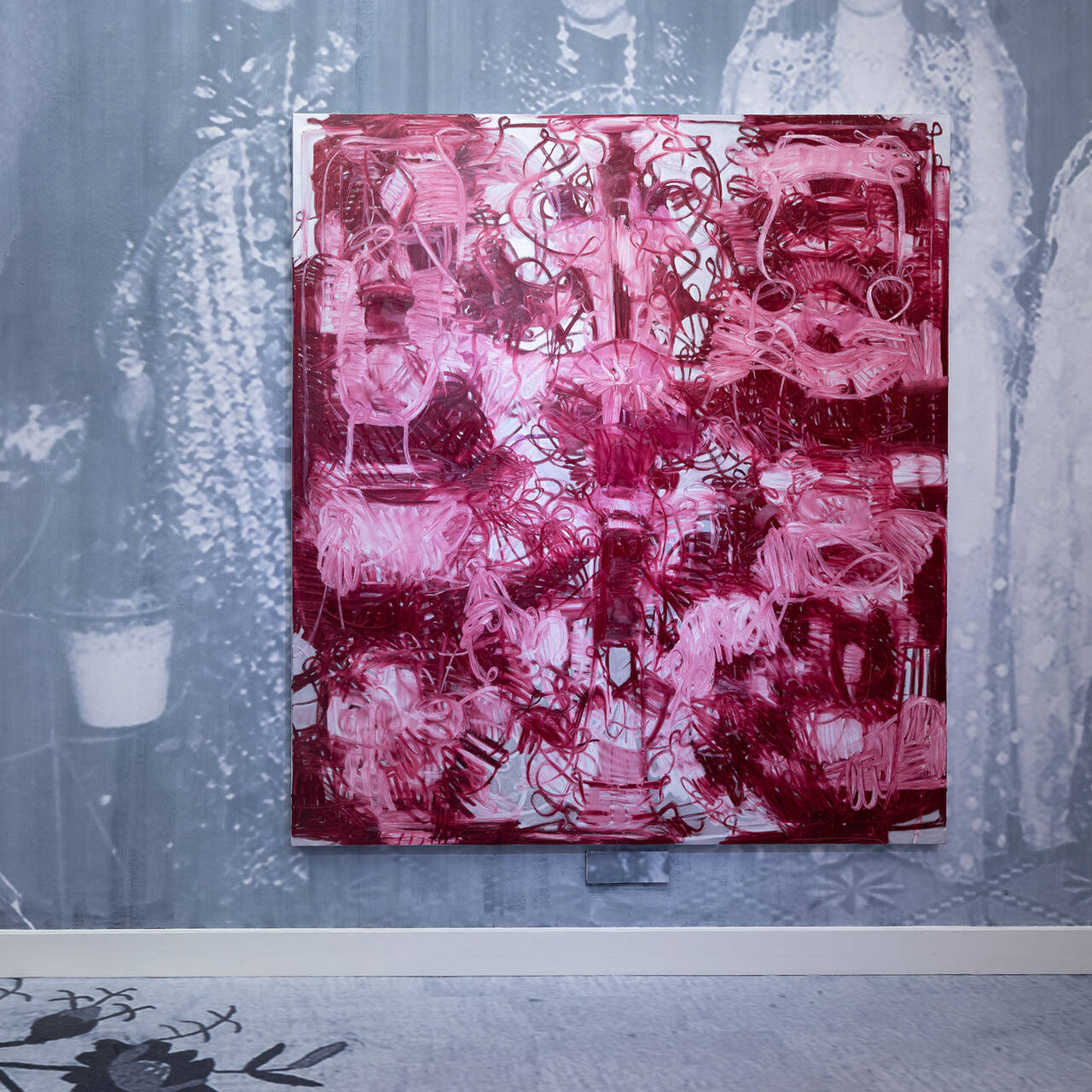Kay Shanghai is the first openly gay rapper in German. In the interview he talks about how he went from being a club owner to a musician, about his album "Haram" and what hip hop means to him.
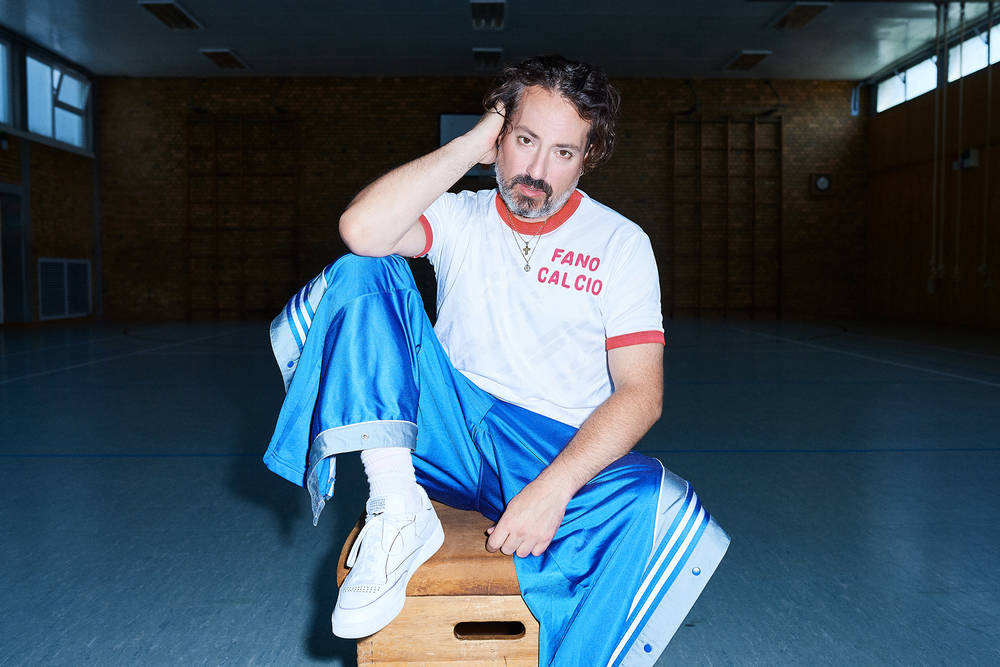
What made you choose hip hop? The reason I ask this is that there are still many problematic aspects in this genre: Sexism, homophobia, racism.
And that is the very reason why I wanted to get involved. We really have fun writing our songs. And naturally we’re aware of the impression we create. We can guess how things will go down in the scene. And we enjoy teasing it out.
Way back when, the genre always represented a latent threat. Even in the United States it is only in the last ten years or so that queer artists have become established in hip-hop, with artists like Tyler, The Creator and Frank Ocean. It took me a while to understand that I was also prejudiced against the genre. This is because of those earlier rappers. The new generation is much more flexible and more open about things.
I saw myself as a gay activist. Naturally, it’s very easy to see a glaring intention in my music. But it’s never preaching. I think you’re more likely to change people by simply gaining their sympathy. Often that doesn’t require a lot of explanation. Ultimately, I’m not really sure that my songs are that gay. Fair enough, there are more explicit songs like "Schwänze seit der Schulzeit" (Play Truant/Cocks since School) that incidentally heterosexuals and especially women really enjoy singing along to - because they are allowed to just bawl it out. I believe that is the "plus" in LGBTQ+. “ Plus” also means all non-gay, queer people who are willing to take on a queer point of view. That's the point where it's really fun. When people don't think so much, but just accept things
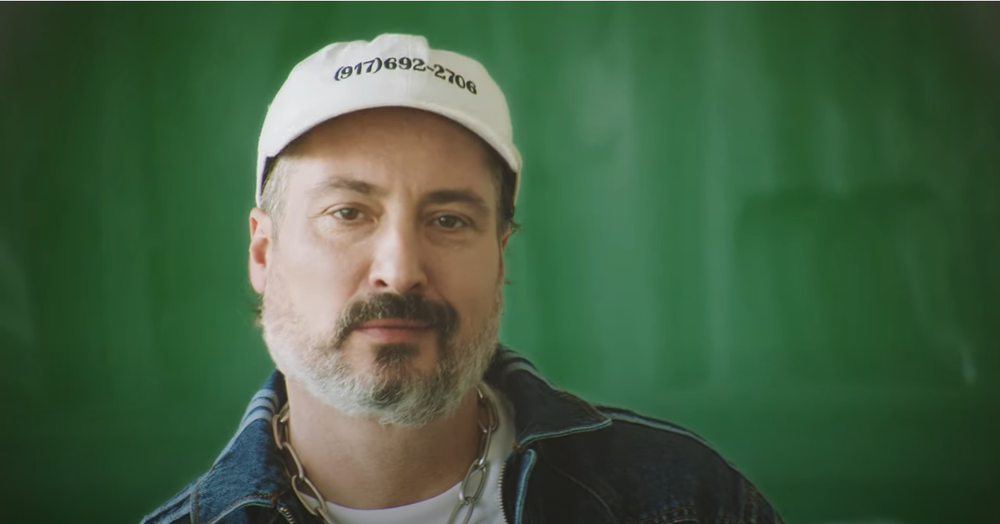
It must be a fantastic feeling when that happens.
I feel that people are also looking for such individual personalities. Away from the mainstream and away from the way gay or queer people are typically portrayed on television. It’s all very, very one-dimensional with people just being portrayed as clowns or freaks. I think people are fed up. They are looking for genuine identities.
And when someone comes along with a certain amount of experience of real life and a certain amount of nonchalance, the kids see that it’s real, that it’s fun for them. Maybe they think, "When I’m that old, I want to be like that, too.” Oh God, that sounds really old now.... But that’s the point. It’s not about a youthfulness that you fake or flaunt.
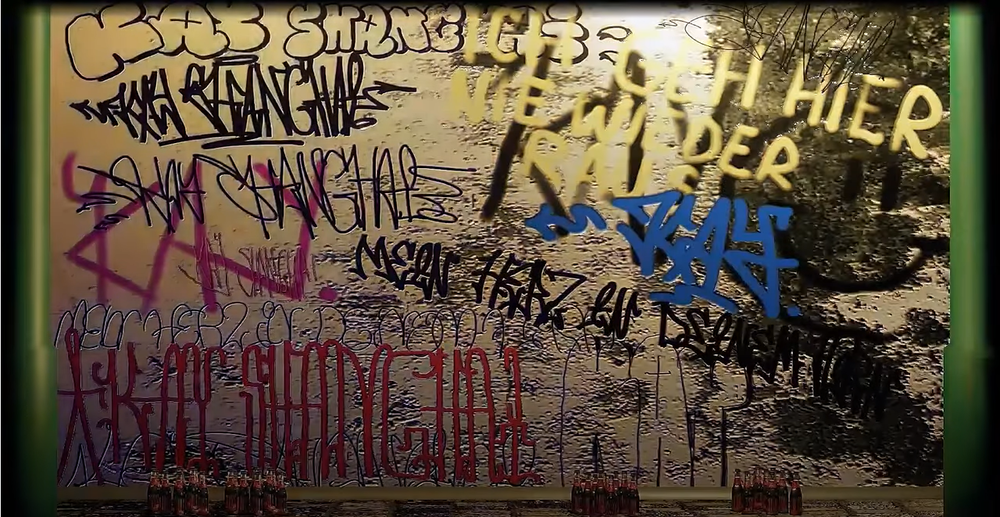
You aren’t like that, should you have any doubts on that count.
Well, when I look at my old press photos, I do look a bit different!
So what have the responses to your album been.
Music critics really like my album. I recently gave an interview about the queer hip hop scene in Germany and me as one of its representatives. And, hey, I’m just one of many! First of all, we talked about why it’s important to be the first openly gay German-speaking rapper. Why does it have to be expressed like that? Of course, it’s not immensely important. Of course, it’s part of the game to come out with such a claim. But it is important that I said I’m the first one who can be spoken to on the issue.
The important thing is that you talk about it now, that you explore the topic and dig deeper into it. Otherwise, I believe quite simply the stories have been told to the point of exhaustion. People don’t want to hear for the umpteenth time how he ran away from the police officer and then hides the dope. First of all, it’s simply adopting something from the American scene. Secondly, the story has simply been told too often to sound original anymore. And other queer artists are entering the scene who have entirely different stories to tell.
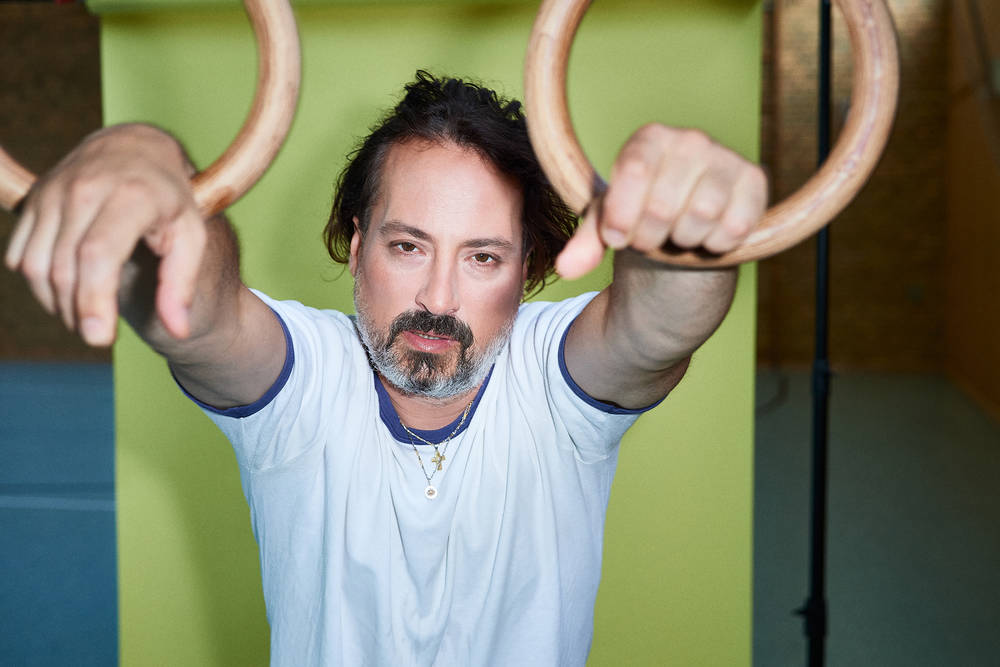
What stories do you tell with “Haram”?
Most of the songs are very personal. The downbeat songs, essentially, the love songs. This romantic feeling I have inside me. The album is a cross-section of my emotional world. I am very often silly and have a big mouth. But in the end, I need a lot of love and want to have someone to cuddle. The way I say it in the songs. I mean to be honest that sounds worse when you say it than when you sing it.....!
Music lets you put a lot of things in a more beautiful or simpler way.... So “Haram” is a snapshot of its time?
Most of the songs reflect a feeling that I re-found during the pandemic. That I found because everything else had simply gone up in smoke. It wasn’t so much a frightening feeling, more a liberating one. It’s always difficult to say that because the pandemic has brought unhappiness to so many people. And I likewise felt unhappiness, but I was able to liberate myself from it. I think you can hear that in some of the songs. There’s a great sense of lightness and I don’t know whether I would have expressed myself like that if I had not felt liberated from everything. For me it was like a fresh start.
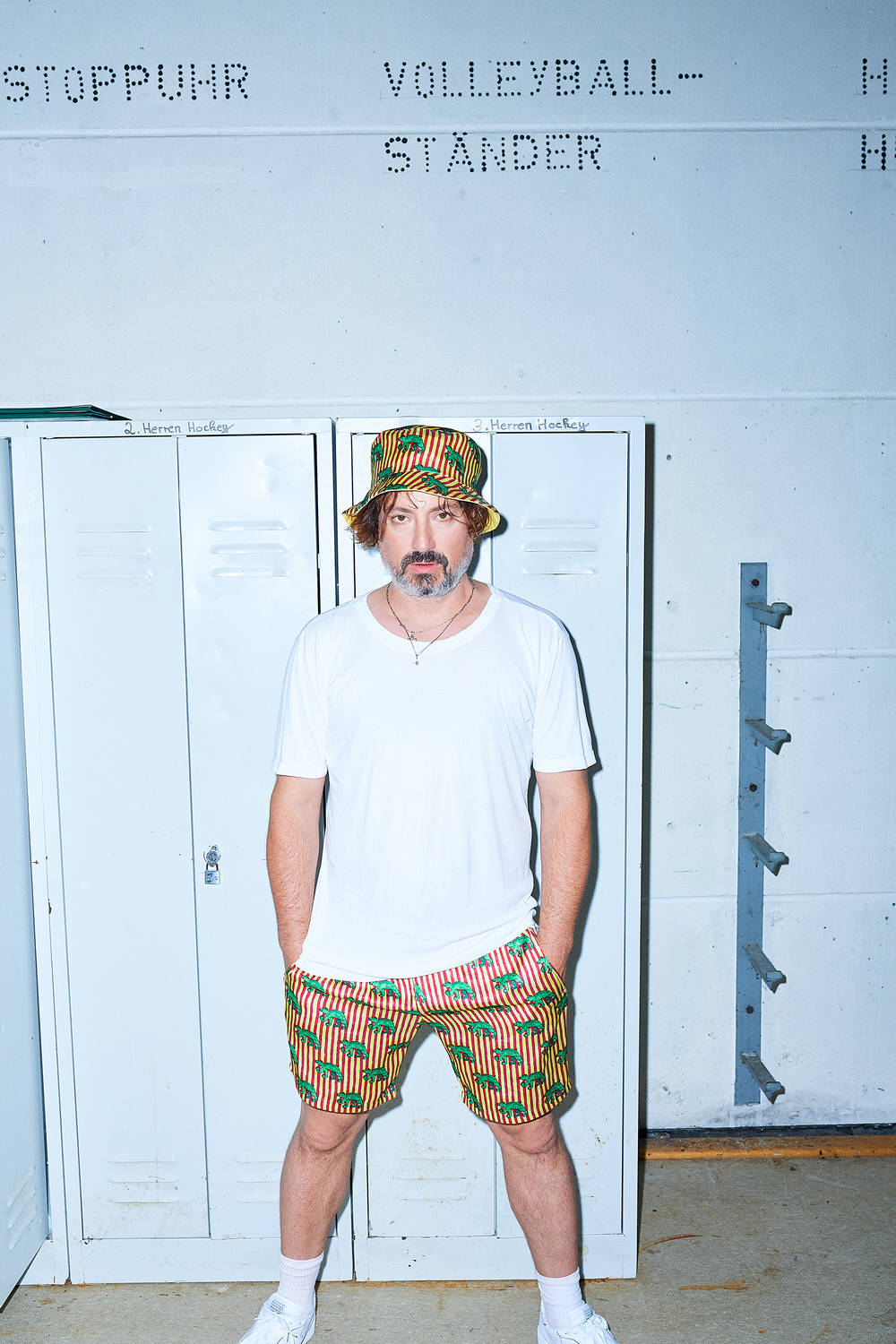
Your sexuality plays an important part in your songs. Is that because it’s quite simply part of your life or did you perhaps also feel a kind of responsibility to address the topic? Maybe in order to encourage others to be more open with their sexuality?
Well, I’ve been gay for some time now. And anyone who is gay knows this: You get asked a lot of really stupid questions in the course of your life. Actually, I’m talking about things that are quite normal. But in combination with the genre, and the way I tell things with humor and in a provocative manner a very simple thing gets exaggerated that I don’t really assign that much importance to in my life.
Naturally, I notice that it has a certain impact. The fact that we’re talking about it and that I’ve talked to lots of journalists about it. Then you do sense a responsibility of sorts... which is a word that carries some weight... I can speak on behalf of lots of people.
My heart goes out to trans-kids, in particular, because they have the least opportunity to hide. Which they absolutely should not do, but which is a queer mechanism. Many queer people get the feeling in their adolescence that they have to disguise or create something in order to distract from the real issue. Especially when you’re growing up, you’re very unsure whether you’re going to face humiliation or rejection. Later, when you mature and have become comfortable with who you are, you find ways to get rid of these mechanisms. This process can be very demanding. Which is why it’s important to let people be who they are and accept them. Especially when those people are still kids.
